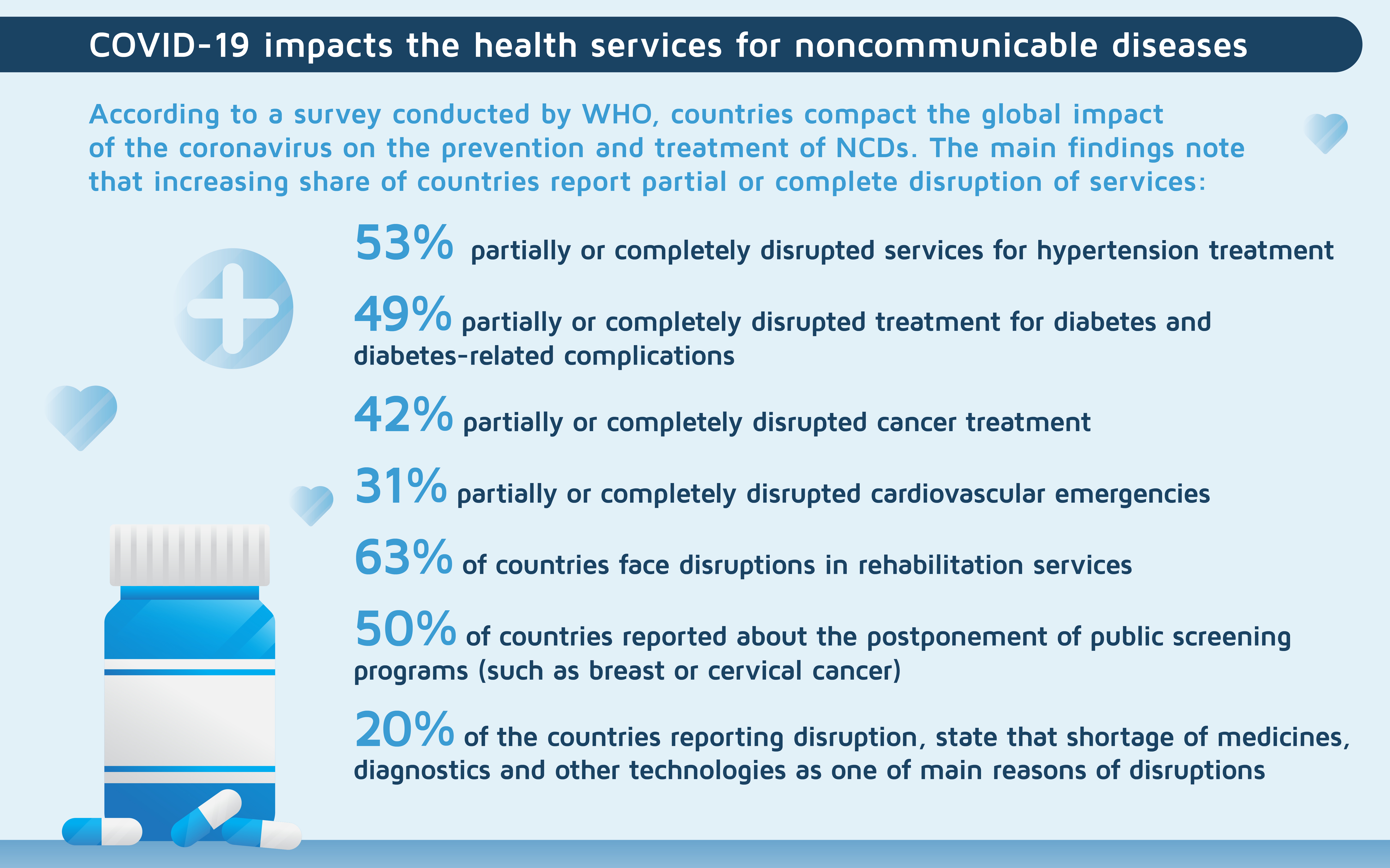(May 28 – June 3, 2020)
Almost 700,000 new COVID-19 cases have been registered since our last weekly review of the coronavirus situation across the world. The total number of coronavirus patients has now reached 6.4 million with 380,251 deaths and almost 2.7 million recoveries. At least three out of the ten countries with the highest numbers of confirmed cases – Brazil, India and Peru – currently face a daily increase in COVID-19 patients and are struggling in their efforts to flatten the curve, according to data provided by Johns Hopkins University Coronavirus Research Center.
These countries, and other emerging economies such as Mexico, Nigeria and South Africa, are likely to face skyrocketing unemployment levels due to the pandemic. As economic activities have ground to a halt, millions of people are losing their jobs or experiencing a significant reduction in working hours. In its June 2020 Briefing on the World Economic Situation, the United Nations Organization concluded that inequalities that separate societies along educational, gender, age and immigration divides are defining the impacts of the COVID-19 crisis on the labor market.
Low-skilled workers – especially women, youth and migrants – are the most exposed to lay-offs and wage cuts, while those who work in the informal sector are particularly hard hit because of weak or no social protection.
Governments in these emerging economies will have to consider and implement employment programs in order to create sufficient jobs to engage the newly unemployed workers, the authors of the paper conclude.
In a similar vein, researchers from the University of Bonn’s Center for Development Research (ZEF) in Germany found that social inequalities could cause a “brutal increase of mortality among the poorest of the poor” if no action is taken. A small scale survey undertaken by ZEF in 15 countries in Africa and South Asia discovered that, despite the availability of food, people no longer have the money to purchase it.
“We have seen in a number of countries that the decline in purchasing power has led to waste of fruit, vegetables and dairy products” (Professor Joachim von Braun, head of ZEF).
COVID-19 hits NCD patients hard
People suffering from cancer, cardiovascular disease, diabetes and other non-communicable diseases (NCDs) face a double threat due to the COVID-19 pandemic. Firstly, people living with NCDs are at a higher risk of severe coronavirus related illness and death. Secondly, due to the corona outbreak, many patients are not receiving the healthcare services and medication they need.
According to a survey released recently by the World Health Organization, health services have been partially or completely disrupted in many countries.
“It will be some time before we know the full extent of the impact of disruptions to healthcare during COVID-19 on people with non-communicable diseases,” said Dr Bente Mikkelsen, Director of the Department of Noncommunicable Diseases at WHO

However, the survey also highlights some encouraging findings, among them being the increasing rate of telemedicine (advice given by telephone or online) to replace in-person consultations. Globally, 58% of the surveyed countries are now using this facility. In low-income countries, this figure is 42%.
The DevelopmentAid news team has previously reported about the increasing role of telehealth.
NCDs kill roughly 41 million people each year which equates to 71% of all deaths globally. Almost one-third of these deaths occur in low- and middle-income countries, among people between 30 to 69 years of age.
The Shadow Pandemic
Globally, 243 million women and girls aged between 15 and 49 have been subject to sexual and/or physical violence instigated by a close partner in the last 12 months. In the near future, this number is likely to increase because of the heightened tensions which have been accentuated by lockdowns and confined living conditions.
To address this issue and to deliver a vital message urging people to act to support women, UN Women (the United Nations entity dedicated to gender equality and the empowerment of women) has launched the Shadow Pandemic public awareness campaign.
The campaign’s public service announcement is a film narrated by Kate Winslet, an Academy Award-winning actor.
The world is slowly opening up again
Croatia, Estonia, Latvia, Lithuania, South Sudan, Tanzania and Tunisia have “cautiously taken steps to ease travel restrictions” and introduced measures to facilitate international tourism. This represents only 3% of all the destinations worldwide.
At the same time, 100% of all destinations worldwide continue to have some form of COVID-19-related travel restrictions in place according to a report issued by the United Nations World Tourism Organization.
The report also shows that “the more important tourism is to the economies of individual destinations, the more likely they are to have introduced complete border closures”. In the case of SIDS destinations (Small Island Developing States), 85% continue to keep their borders completely closed for tourism purposes.
The DevelopmentAid news team is working hard to keep you up to date with the most important headlines and events during the COVID-19 pandemic. Become a member and subscribe to our newsletter in order to remain fully informed about the latest news in the International Development Sector.
The next DevelopmentAid weekly coronavirus review will be released on June 10, 2020.
About COVID-2019 Coronaviruses are a large family of viruses that are common in many different species of animals including camels, cattle, cats and bats. Rarely, animal coronaviruses can infect people and then spread between them such as was the case with MERS (2012) and SARS (2003).The symptoms of the virus are very similar to those of a common cold – runny nose, headache, cough, sore throat, fever, a general feeling of being unwell. Blood tests are necessary in order to prove the presence of the virus in the organism. Named by scientists as the “Wuhan seafood market pneumonia virus”, COVID-19 is a coronavirus, like MERS and SARs, all of which have their origins in bats. Initial reports show that, in the early stages of the outbreak (early January 2020), many of those infected in Wuhan had some link to a large seafood and live animal market – the Huanan Seafood Wholesale Market, mainly its western wing where wildlife animals are traded. This suggests that the virus initially affected an animal and subsequently spread to a person in a what a CDC has called “the species barrier jump”.

